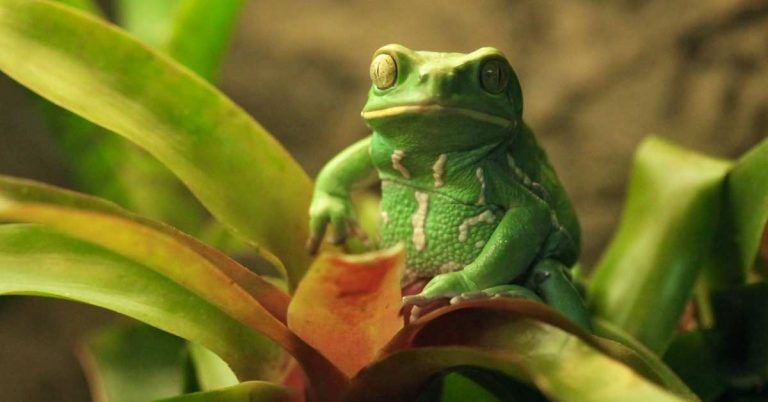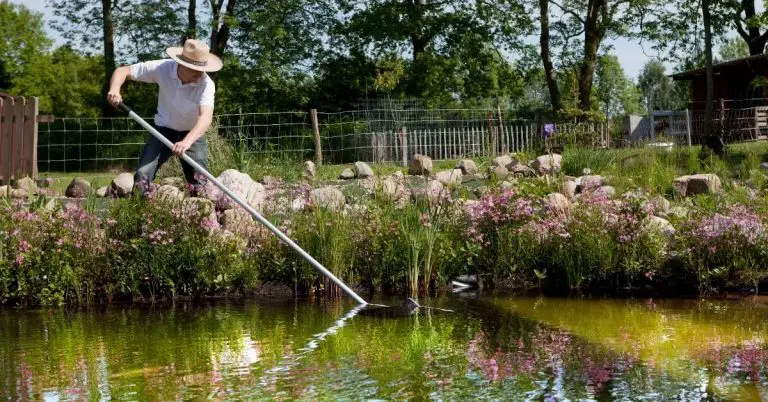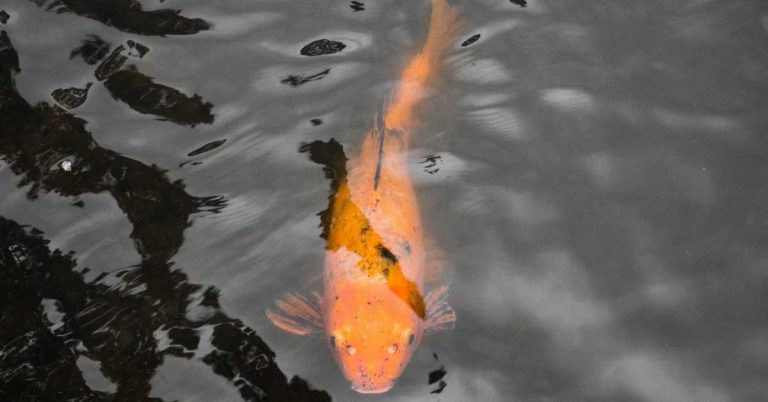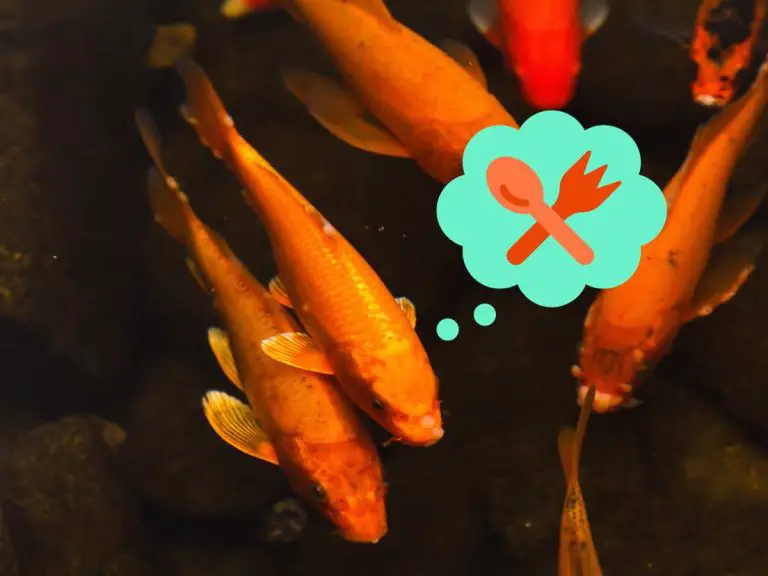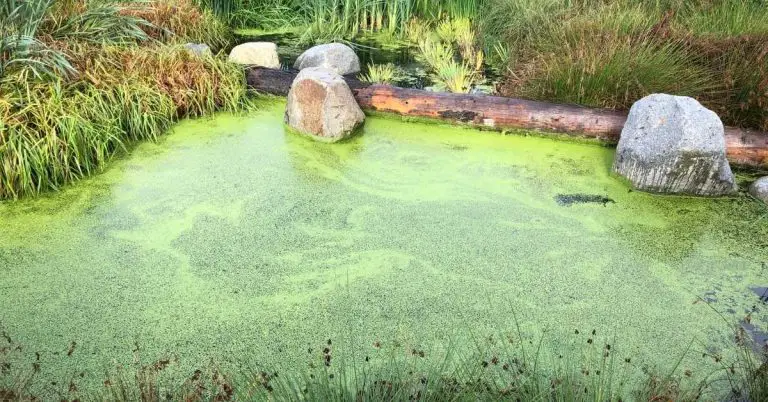How To Make Betta Fish Happy – It’s Actually Super Easy
Betta fish, also known as Siamese fighting fish, are a very popular freshwater fish native to Southeast Asia. These fish are beloved due to their complex personalities and awareness of their surroundings, but this can also make them temperamental creatures. So you may be wondering: how can you make your betta fish happy?
In general, you can make your betta fish happy by keeping them healthy, stress free and occupied. This means keeping their water clean and warm, feeding them a healthy diet and giving them lots of hiding places along with plenty of interesting decorations and plants to keep them busy. Just remember, a healthy betta is a happy betta.
But betta fish are complex creatures, so giving them clean water and a hiding spot isn’t necessarily enough to make them happy. Let’s go over how you can tell if your betta fish is happy, sad or sick and then I’ll give you some tips to help cheer up your betta if it’s feeling down.
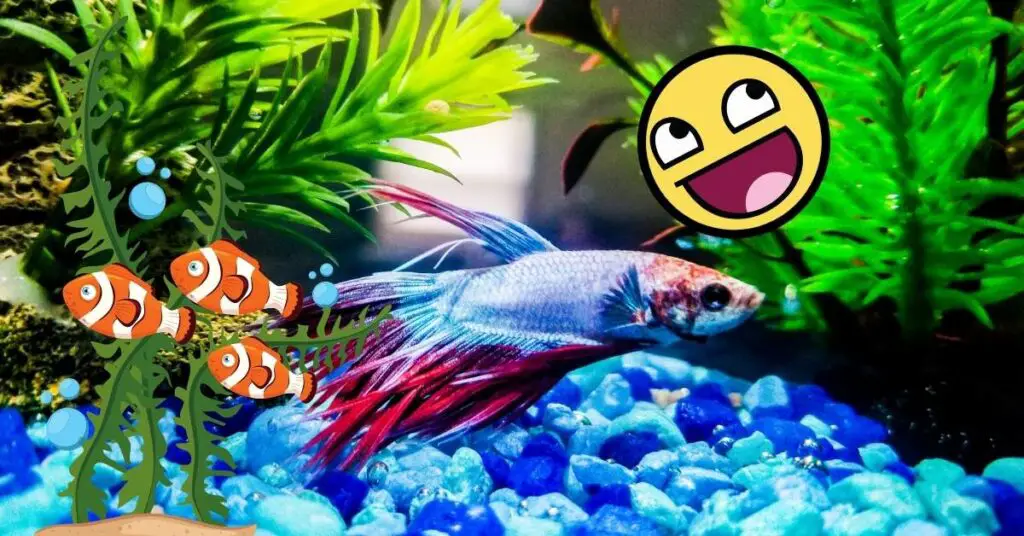
How Do You Know If Your Betta Fish Is Happy?
Betta fish share a lot in common with humans, especially when it comes to their rich emotional lives. But unlike humans, we can’t simply ask our betta fish what’s wrong when they look a little down in the dumps.
The best way to know if your betta fish is happy is to closely monitor their behavior. A happy betta fish is active, constantly moving and generally curious about their surroundings. A happy betta fish will also have a healthy appetite and aggressively eat any food as soon as it’s made available to them.
Betta fish are intensely curious creatures and are known for carefully inspecting anything novel in their environment, including what’s going on outside of the tank.
So if you place something new in the tank like a decoration or plant, you should expect a happy betta fish to immediately inspect it thoroughly, somewhat similar to how a dog or a cat might react to a new piece of furniture or toy.
You should also expect that a happy betta fish will follow you around the tank or even swim to the surface if it notices you looking down on it.
Betta are incredibly active fish under normal happy circumstances, so if you see him or her frequently darting from one side of their pond or tank to the other, that’s a promising sign.
Other normal behavior in a (male) happy betta fish includes making a bubble nest, which is basically a large network of small bubbles at the surface of the water. When betta fish mate, the male betta will take the females eggs and place them securely within these bubbles.
If you notice your betta fish doing most or all of these things, that’s a very good indicator that they’re healthy and happy.
Key Points:
A happy betta fish:
- Is constantly moving
- Is very curious about its surroundings
- Is Interested in novel things inside and outside of its water
- Reacts to humans nearby
- Has a healthy appetite
- Looks healthy
How Do You Know If Your Betta Fish Is Depressed?
A sad betta fish might not be the easiest thing to spot, but once you know the signs it will be obvious your betta is depressed or not feeling well.
In general, the sign of a sad or depressed betta fish is slow, lethargic behavior. Just like humans, when betta fish are sad they don’t move around a lot or have much interest in their normal activities like swimming or eating. If you notice your betta fish not behaving or reacting normally, it’s a sure sign that he or she is depressed.
All betta fish have slightly different tastes and proclivities, but one thing they all have in common is energetic behavior. A happy betta fish actively swims around its domain and will occasionally dart from one end of it to another.
But if you notice your betta fish is swimming slowly, keeping to the bottom of the pond or tank or not moving at all, this is a big warning sign that your betta is unhealthy and sad.
Betta fish have voracious appetites, so if your betta seems barely interested in the food you give it, it probably means your betta is not happy or hasn’t had it’s basic needs met.
A common myth you’ll read online is that if a male betta fish has made a bubble nest, it’s a sure sign that they’re happy, but this isn’t necessarily the case. Betta fish make bubble nests because they want to mate, not because they’re happy. So while it’s not a bad sign and can certainly be a part of happy betta behavior, it can also just be an instinct that a sad or unhealthy betta follows as well.
Key Points:
A sad or depressed betta fish:
- Is slow and lethargic
- Doesn’t move at all
- Stays at the bottom of the pond or tank
- Isn’t interested in food
- Doesn’t care about its surroundings
- Isn’t interested in novel objects
How To Cheer Up A Depressed Betta Fish
If you’ve determined that your betta fish is feeling a little down in the dumps, thankfully there are several things you can do to perk them up again.
The best way to cheer up a depressed betta fish is by making sure all its basic needs have been met. This includes an appropriately sized tank or pond, warm water, plenty of hiding places, other fish friends and lots of healthy treats. When these basic needs have been, or preferably exceeded, your betta fish will be back to its normal happy self in no time.
Betta fish are similar to other kinds of pets, like dogs or cats, in the sense that it only takes a few missed needs to make them unhappy. Just like a cat without a clean litter box or a dog that isn’t taken on walks, a betta fish that hasn’t had its basic necessities looked after will become depressed. Luckily, a betta’s needs are pretty simple.
The key to a betta’s happiness is stress – or rather, the lack of stress. When a betta’s environment, water or food is inadequate it stresses them out and stress is the leading cause of illness and death in most fish.
Bettas are warm water fish, so make sure its water is warm, or at least 80F (26.6C). A betta will survive in colder water, but that doesn’t mean it’s happy or not stressed out. Always keep a close watch on the temperature of their water and use a digital thermometer with an alarm if you find the temperature fluctuates too much.
Betta fish do not like bright lights, so try to avoid placing any in their tank or pond. If you do have any lights in their tank or pond, try to mute it by placing plants or some other obstacle in front of it. Betta fish will often find a hiding place behind a plant or other decoration to get away from bright lights.
In the same way that betta fish don’t like bright lights, they actively prefer dark water. Betta fish usually live in black or brown water, which is pretty typical of most natural ponds but not necessarily the case in man made ponds or aquariums. If your betta’s water is too clear, try adding some tannin to the water to darken it up a bit. Tannin is a natural compound that plants give off as they decay but it can be bought as a standalone water additive as well.
Betta fish love to eat, but the wrong kind of food will make them sluggish and sick. So make sure if you do treat your betta to something delicious it’s also something healthy. Freeze dried shrimp, blood worms and beef heart are all healthy choices that betta fish love and are available at most pet stores (and online).
It’s well known that betta fish don’t get along with other bettas, but that doesn’t mean they don’t enjoy the company of other fish. So make sure your betta isn’t the only fish in the pond or tank. For most people this won’t be an issue because rarely would anyone put a single betta fish in an entire pond, but in an indoor fish tank scenario someone might be tempted.
It’s also important to make sure your betta fish has plenty of room, or at least 5 gallons of water. This might seem like a lot considering that most betta fish come in tiny cups at the pet store, but the more space the better. This gives them lots of room to dart around and get exercise which helps keep them healthy and happy.
Finally, make sure there are no sharp edges or corners anywhere in your fish pond or tank. Betta fish love to rub against objects and their flowery fins can easily get torn or cut if they come up against something sharp.
How To Know If A Betta Fish Is Sick
Many of the signs that your betta fish is sick are the same as if they’re sad, so keeping a close eye out for them is essential for their health.
Here are some of the warnings signs you should be on the lookout for in case your betta is sick along with some possible causes:
| Symptom | Possible Cause |
|---|---|
| White dots on their body | Parasitic infection |
| White feces | Parasitic infection |
| Fuzzy growths on their body | Fungal infection |
| Dull colors, as if there is a greyish film over their scales | Fungal infection |
| Glassy eyes | Fungal infection |
| Eyes popping out | Bacterial infection |
| “Pine coning” scales that appear to be raised or popping out | Bacterial infection |
| Bumps on their body | Bacterial infection |
| Dark or rough fins | Bacterial infection |
| Irregular/crooked swimming | Bacterial infection |
| Constant rubbing or scratching against objects | Parasitic infection |
Related Questions:
How Do I Keep My Betta Fish Entertained?
Betta fish love constantly swimming around, novelty and having places to hide. To keep your betta fish happy, make sure they have at least a 5 gallon tank and lots of interesting plants and decorations with plenty of places to hide.
Are Betta Fish Happy Alone?
Betta fish don’t like being in close quarters with other betta fish, but they do enjoy the company of other kinds of fish. In fact, being all alone in a tank or pond can cause betta fish to become stressed out or even ill, so it’s probably a good idea to make sure they have a “friend” nearby wherever they are.
Do Betta Fish Like To Be Touched?
Betta fish, along with most other kinds of fish, do not like to be touched or handled by humans. Touching a betta fish can cause it to become afraid and possibly bite you. Fish also have a natural coating of film and bacteria on their bodies which can become disturbed if touched and possibly lead them to be vulnerable to illness and disease.
What Do Betta Fish Like In Their Tank?
Betta fish like a lot of space and places to hide in their tanks. This means it’s definitely a good idea to have plenty of live plants as well as interesting decorations to hide behind in any tank you plan on keeping betta fish.

